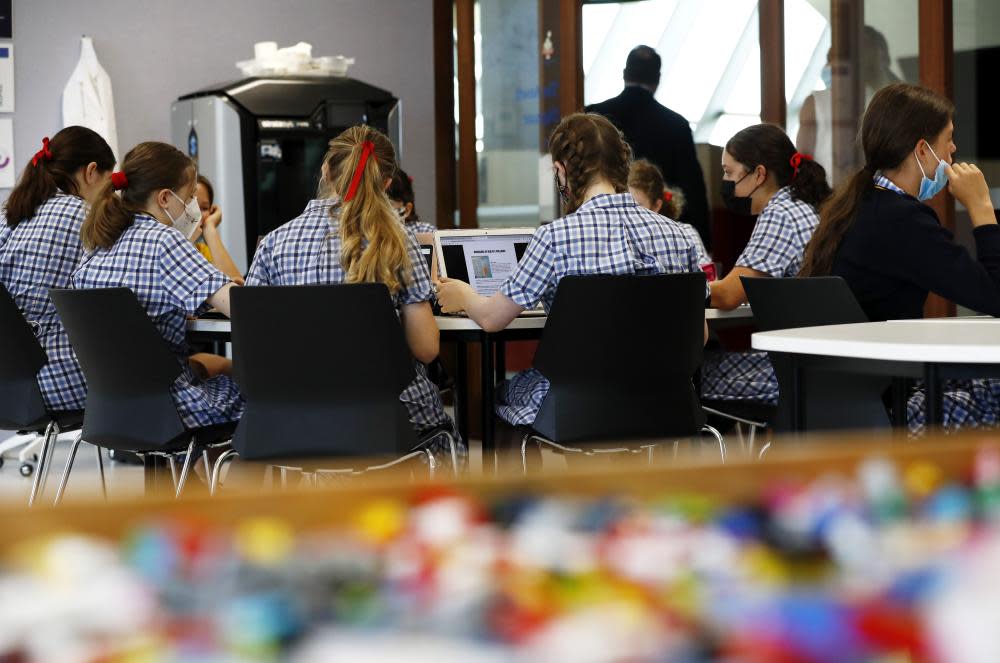Australia failing to make progress on literacy and numeracy despite investment, reports finds

Australia is failing to make progress on literacy and numeracy levels despite more investment in schools, while graduate employment rates have fallen, a new report from the Productivity Commission has found.
The Productivity Commission’s deputy chair, Alex Robson, said that while Australia’s education outcomes were “relatively good”, recent trends had raised some concerns.
“Combined with a shift in the nature of skills demanded by Australian businesses, it is timely to examine where improvements can be made to improve productivity in these productivity-enhancing sectors,” Robson said.
The “from learning to growth” report was released as part of the commission’s five-year productivity inquiry. It highlighted the links between improved education outcomes and productivity, and pointed to ways in which Australia’s education system can be better designed to meet future skills needs.
The report found that academic results for foundational skills such as reading, writing and numeracy had been “flat for over a decade”, even as spending on schools had increased.
Related: One-fifth of last year’s teaching graduates in NSW aren’t registered in the profession
It suggested teacher assistants and technology could be better used to allow teachers “to focus on core teaching functions to improve the quality of teaching”, saying that workloads had increased but mostly for non-core duties.
Pointing to OECD statistics that show one in five Australian adults have “low basic skills” in literacy and numeracy, the report highlighted the need to address foundational skills.
“This is associated with lower likelihood of being in employment, education or training; and lower incomes,” the report said. “A better education system would reduce the share of lower-skilled people and promote their wellbeing and the productivity of the workforce.
“And foundational skill deficits will become even more damaging as the demand for routine manual skills continues to decline.”
The report said skill requirements will grow in future decades, with more than nine out of 10 jobs created in the next five years requiring a post-school education, and three out of five new jobs expected to be high-skilled.
But amid the growing demand for a better trained workforce, the report pointed to falling employment rates for university and VET graduates over the past decade, and growing levels of employer dissatisfaction with the quality of VET graduates.
“For VET and higher education, the question is not just what to teach, but how to teach it,” Robson said. “It could also be beneficial to explore current funding structures that distort the choices of students in favour of universities over VET, limit competition between providers, and restrict the number of available student places.”
The skills and training minister, Brendan O’Connor, said the government was committed to tackling the “acute skills shortage” it had inherited from the former government.
“Providing stronger support for foundation skills, removing barriers to participation and ensuring access for all Australians is a top priority for the Albanese government,” he said.

 Yahoo Movies
Yahoo Movies 
